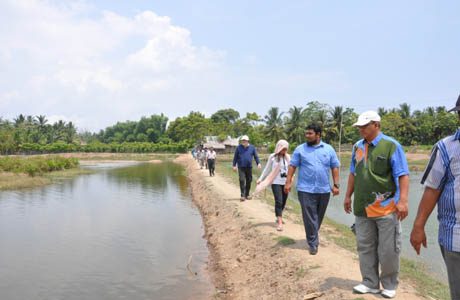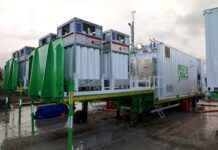
Researchers at Robert Gordon University (RGU) in Aberdeen have won £165,760 in funding from the UK Foreign and Commonwealth Office’s Prosperity Fund to support the establishment of a South East Asia Marine Energy Centre (SEAMEC) in Indonesia.
Dr Alan Owen and Dr Leuserina Garniati from the university’s Centre for Understanding Sustainability in Practice (CUSP) worked with UK and Indonesian academic, business, and NGO partners to secure the funding.
Hannah Smith, Policy Officer at Scottish Renewables, said: “The European Marine Energy Centre in Orkney provides an enviable template for the development of wave and tidal power devices. Transferring that model to Indonesia will allow the region to begin to tap into the potential economic and environmental benefits of marine energy, as well as cementing Scotland’s place at the forefront of some of the most exciting work in the energy sector.”
Through SEAMEC, which has the support of both industry and academia, the project looks to create a multinational, multi-stakeholder platform to drive policy and capacity building within the region as part of a long-term, comprehensive marine renewable energy programme within South East Asia.
Dr Owen said: “The establishment of a marine energy centre in South East Asia will be a huge boost towards accelerating the development of an internationally connected, sustainable and commercially viable marine energy industry across the region.
“I would point towards the European Marine Energy Centre (EMEC) in Orkney as an example of the kind of model we are trying to create in South East Asia, but with the emphasis on capacity building, socio-economic outputs and developing policy and strategy rather than technical outputs.”
Dr Garniati added: “We also hope that SEAMEC will play a significant role in opening up knowledge exchange between renewable energy expertise in the northern and southern hemispheres to identify new materials, methods and fabrication processes appropriate for a very different marine environment.
“Given the many and varied challenges posed by extending marine energy technologies into the region and the huge untapped marine energy potential therein, SEAMEC is a necessary platform to ensure equal opportunity in collaborating with business, academia and governments in one of the most economically exciting regions of the world.”
Since its inception in 2009, the CUSP team has won over £1.58 million in multi donor funding bids including those from the Department for International Development (DFID) Rapid Response Fund, Foreign and Commonwealth Office (FCO) Prosperity Fund, and British Council Newton Fund to undertake sustainable energy applied research and capacity building in Europe and South East Asia.
From these, CUSP has produced strategic briefs and policy recommendations, and has utilised many of the findings to enrich the materials in its postgraduate teaching.







